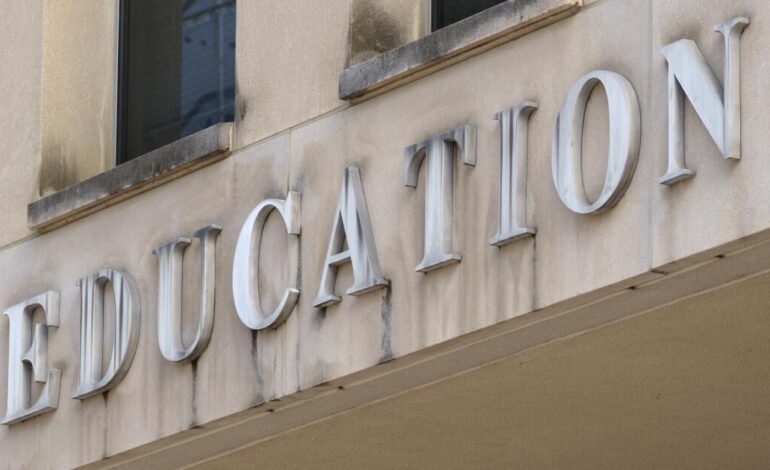Trump Administration Targets Education Funding Amid Controversy

The Trump administration is making significant changes to the landscape of public education, with plans to reduce federal funding and tighten the criteria for financial support. Education Secretary Linda McMahon announced that the Department of Education (DOE) would release billions of dollars for the upcoming school year, but the move comes in the wake of political pressure and legal challenges.
In late June, the federal government decided to withhold education funding, leading to protests from teachers, parents, and school administrators across the country. In response, 24 states filed a lawsuit against the administration, asserting that the government had reneged on previously appropriated education funding. The temporary funding reprieve appears to be a direct response to these widespread protests.
The administration’s long-term goal seems to align with President Donald Trump‘s campaign promise to shutter the Department of Education. Reports indicate that the agency has already lost approximately 2,000 staff members, either through firings or resignations. On July 14, the Supreme Court lifted an injunction against these firings, enabling the administration to proceed with its plans. Justice Sonia Sotomayor criticized the ruling, highlighting the potential for “untold harm” to students, including risks of discrimination and a lack of educational opportunities.
The current administration’s approach to education funding threatens to withdraw nearly $30 billion in aid, particularly targeting diversity, equity, and inclusion (DEI) initiatives. McMahon has stated that school districts must demonstrate the elimination of DEI programs to secure federal funding. This marks a significant departure from a bipartisan consensus established over the past six decades, which emphasized the importance of federal investment in closing the achievement gap between privileged and disadvantaged students.
Historically, programs under Title 1 of the 1965 Elementary and Secondary Education Act have aimed to support disadvantaged students through smaller class sizes, after-school programs, and tutoring. Research indicates that Title 1 funding has contributed to improved performance on the National Assessment of Educational Progress (NAEP), often referred to as the nation’s report card. Innovative educational initiatives, such as the Harlem Children’s Zone and Tutoring Chicago, have demonstrated particularly strong results.
The proposed changes could also dismantle support for students with disabilities, undermining the requirement for schools to provide a “free and appropriate education.” Such a shift would have dire consequences for vulnerable students who benefit from needs-focused special education programs.
McMahon argues that focusing solely on “meaningful learning” rather than DEI initiatives will enhance academic achievement. Yet, numerous studies suggest that DEI programs have been effective in reducing discrimination and improving student outcomes. When students feel valued and supported, their academic performance tends to improve, contrary to the administration’s narrative.
The administration’s approach is further evidenced by the introduction of a nationwide school voucher program within Trump’s proposed legislation, dubbed the One Big Beautiful Bill Act. This program would allow for a tax deduction of up to $1,700 for donations to organizations providing educational scholarships. With no cap on the program, it could potentially cost taxpayers up to $50 billion annually. Critics argue that such a program would disproportionately affect public schools, exacerbating inequalities by allowing private schools to selectively admit students.
Research from states like Louisiana, where voucher programs are already in place, has shown that students using these vouchers often perform worse than their public school counterparts, particularly in mathematics. Education policy expert Joshua Cowen from Michigan State University has found that these programs have led to poorer outcomes than those experienced during the COVID-19 pandemic.
In response to the administration’s initiatives, defenders of public education are mobilizing. Twenty states have initiated legal action against the Department of Education, challenging the demand to eliminate DEI programs as a condition for receiving federal funds. Massachusetts Attorney General Andrea Joy Campbell stated that the administration’s threats to withhold funding are “unlawful” and detrimental to students and families.
While the courts may ultimately decide the legality of the administration’s actions, litigation can be a lengthy process. The damage to public education may be irreversible by the time final judgments are reached. As the political landscape continues to evolve, it remains crucial for Congress to uphold its responsibilities to protect public education and resist pressures to adopt voucher systems that threaten the stability of schools across the nation. The question remains: will Congress act to defend the future of public education amidst these sweeping changes?






